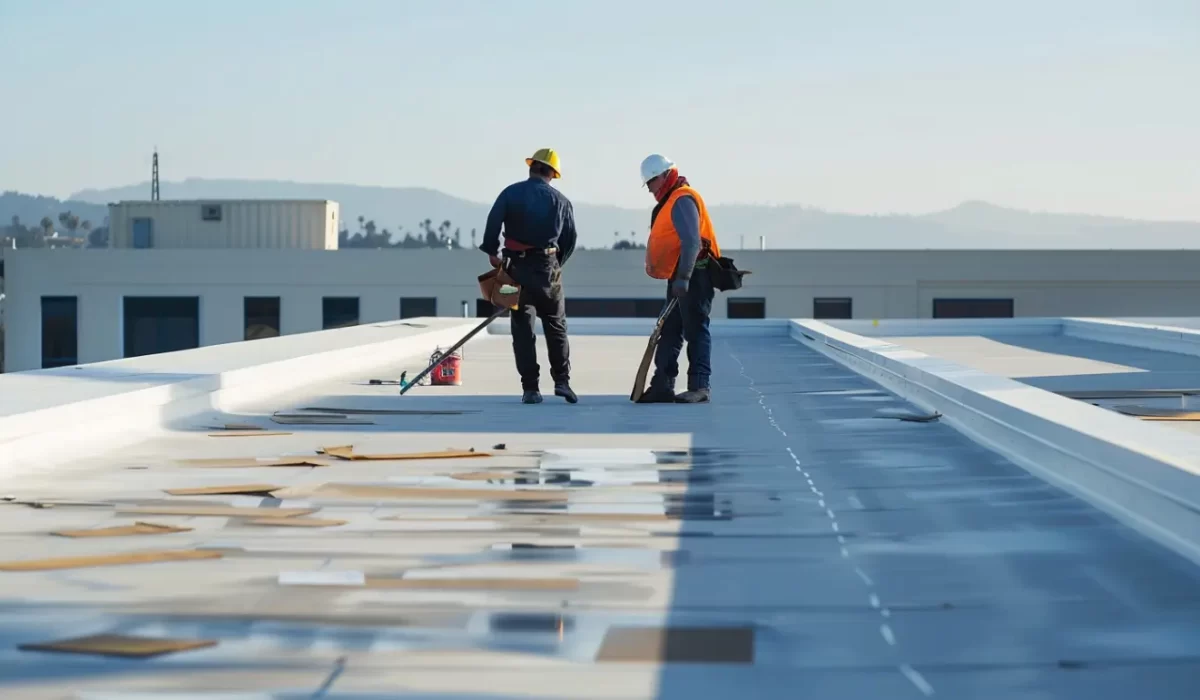Executing major roofing projects in occupied buildings requires careful planning and execution. Fontaine Roofing in Orange County, CA, understands that property managers must navigate the complexities of tenant needs while ensuring compliance with legal obligations. By adopting effective communication strategies and establishing clear channels for addressing concerns, property owners can significantly reduce the likelihood of tenant complaints. Understanding the impact of construction on tenants’ daily routines is essential, as it not only affects the project’s success but also contributes to maintaining positive tenant relationships throughout the roofing work.
Roofing Challenges in Occupied Buildings
Major roofing projects in occupied buildings, especially when considering hvac units, often present a unique set of challenges for property managers and contractors alike. Noise pollution and material disruption are primary concerns that can affect tenant satisfaction and overall project success. Additionally, unpredictable weather conditions can exacerbate these challenges, leading to potential structural damage or delays. Understanding tenant usage patterns and building dynamics is essential in developing effective strategies to mitigate complaints and ensure seamless communication throughout the roofing process, thereby fostering a cooperative environment.
Contact Us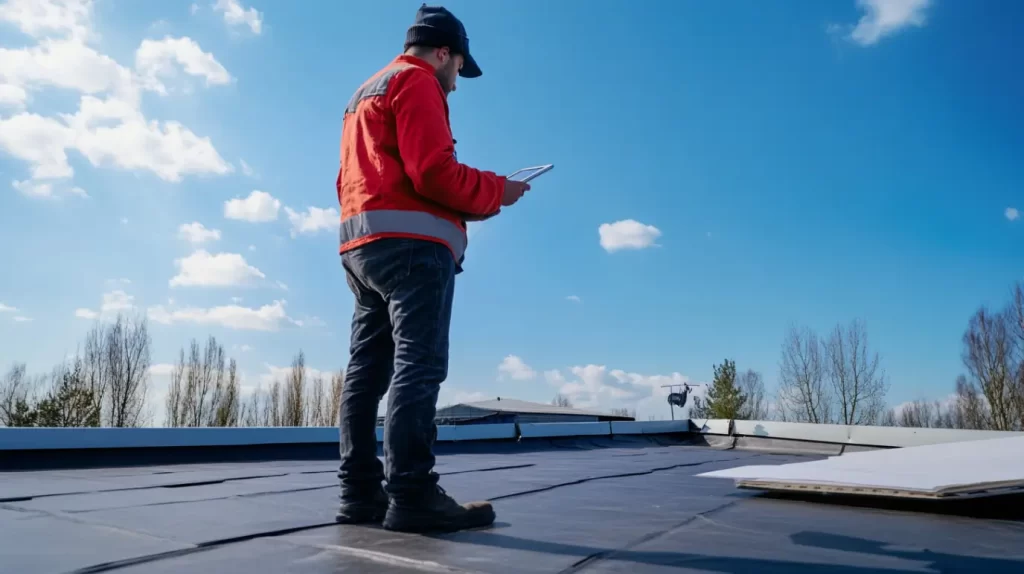
Roofing Challenges for Property Managers
Managing major roofing projects in the residential market presents several challenges for property managers. Disruptions to daily routines can lead to tenant dissatisfaction, as noise and limited access to facilities may affect residential and commercial occupants alike. Additionally, unforeseen weather conditions can delay progress, impacting project timelines and budgets. Communication barriers often arise, making it difficult to address tenant concerns efficiently. Establishing proper notifications and managing expectations is crucial, as these factors can significantly influence the overall success of the roofing project.
The Role of Tenant Complaints in Project Delays
Tenant complaints often arise during major roofing projects due to noise, disruption of daily routines, and concerns about safety. Property managers must recognize that unresolved issues can escalate, resulting in strained tenant relationships that hinder project progress. The impact of these complaints extends beyond immediate discomfort; they can lead to delays, legal challenges, and potentially higher costs. Effective management of tenant expectations through proactive communication is crucial for maintaining harmony and ensuring project success in the competitive roofing industry.
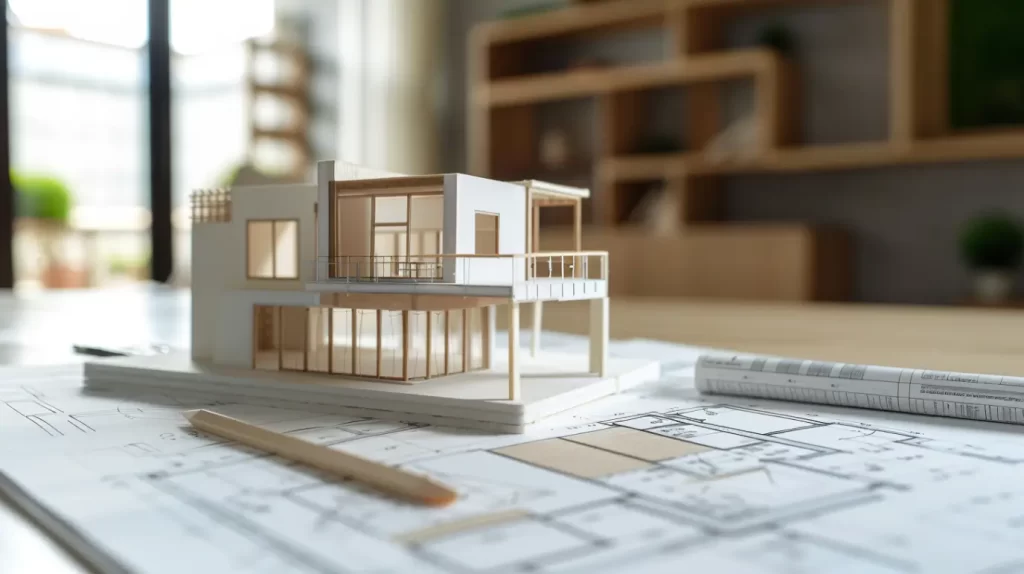
Preparing for a Major Roofing Project
Thorough preparation sets the foundation for successful roofing projects, especially in occupied buildings such as those with a flat roof. Engaging in a comprehensive assessment of tenant needs and the unique patterns of building usage provides invaluable insights. Additionally, selecting an appropriate time window for construction can significantly reduce disruption. Collaborating closely with property managers and roofing contractors to establish a detailed timeline and effective strategies will further aid in minimizing tenant complaints, ultimately supporting a smooth and efficient roofing process.
Assessing Tenant Needs and Building Usage Patterns
Understanding tenant needs and building usage patterns is crucial for property managers during major roofing projects. Conducting surveys and direct consultations can provide valuable insights into how tenants utilize the space at various times. This awareness allows property owners to strategically schedule roofing work in alignment with tenant activities, minimizing disruptions. Moreover, recognizing specific tenant requirements fosters a harmonious relationship, ensuring that concerns are addressed proactively, significantly reducing the likelihood of complaints and enhancing project success in the long term.
Selecting the Right Time Window to Minimize Disruption
Identifying the optimal time window for roofing projects is crucial for reducing tenant disruptions. Property managers should analyze usage patterns and peak occupancy times within the building. Scheduling work during off-peak hours, such as weekends or when fewer tenants are present, can significantly mitigate noise and activity levels. Engaging with a reliable roofing contractor allows for tailored approaches that align with tenant schedules while maintaining compliance with local regulations, thus enhancing overall tenant satisfaction and project efficiency.

Effective Communication to Prevent Tenant Complaints
Open lines of communication in real estate are paramount in maintaining tenant satisfaction during roofing work. Implementing proactive notification strategies, such as advance notices via email or flyers, ensures residents are informed about schedule changes and potential disruptions. Establishing a dedicated contact person for inquiries helps address tenant concerns swiftly, reinforcing a sense of responsibility and professionalism. By fostering transparency, property managers and roofing contractors can mitigate misunderstandings and build trust, ultimately leading to smoother operations and fewer complaints throughout the roofing project.
Proactive Notification Strategies for Tenants
Establishing proactive notification strategies is essential for maintaining tenant satisfaction during roofing projects. Providing early communication about the project scope, timeline, and expected disruptions helps manage expectations and fosters transparency. Utilizing multiple channels, such as emails, flyers, and community meetings, ensures that all tenants receive the necessary information. Additionally, scheduling reminders before significant phases of construction can alleviate concerns. Incorporating feedback mechanisms also demonstrates a commitment to tenant needs, allowing property managers to adjust plans when feasible, thereby enhancing overall project success.
Clear Lines of Communication
Establishing transparent communication channels is crucial for addressing tenant questions and concerns during roofing projects. Designate a specific point of contact, such as a property manager or contractor’s representative, to streamline interactions. Utilizing various platforms like emails, newsletters, or community boards helps ensure information reaches all tenants. Regular updates about project progress and anticipated disruptions will foster trust and reduce anxiety. By actively inviting inquiries, property managers can mitigate possible misunderstandings, leading to a smoother project execution and tenant satisfaction.
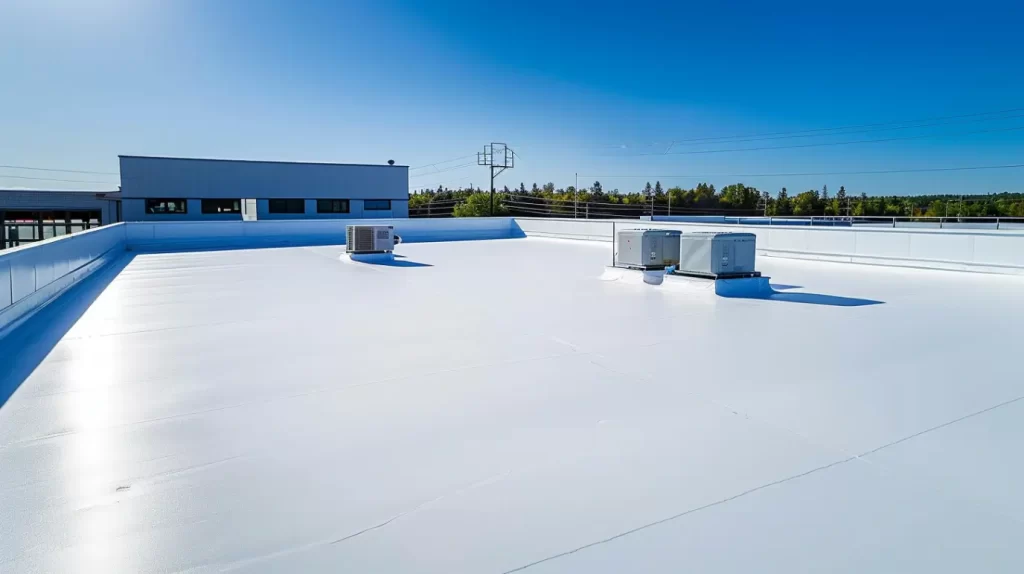
Minimizing Interference with Daily Routines
To effectively minimize interference with daily routines during major roofing projects, careful scheduling and strategic phasing are essential. Coordination between property managers and business owners can result in optimized work hours that align with both residential and commercial needs. Sequencing project stages thoughtfully enables limited area closures, reducing unnecessary noise and disruption. By implementing these best practices, property owners can foster a more harmonious environment, easing tenant concerns while ensuring the roofing company completes the job efficiently and successfully.
Coordinating Work Hours to Suit Commercial and Residential Tenants
Successful coordination of work hours requires careful consideration of both commercial and residential tenant schedules. Understanding peak times for business activities helps property managers mitigate disruptions, allowing residential roofers to perform efficiently without infringing on tenant routines. Prioritizing these considerations fosters a cooperative atmosphere where tenants feel valued and informed. Regular discussions with tenants can reveal their preferences, enabling the roofing contractor to craft a project timeline that aligns with everyday life, thus enhancing overall satisfaction and reducing the likelihood of complaints.
Sequencing Project Stages to Limit Area Closures and Noise
Effective sequencing of project stages is crucial for minimizing disruptions during roofing work at Fontaine Roofing in Orange County, CA. This strategy involves planning tasks in a manner that allows sections of the building to remain operational while others undergo renovation. For instance, flipping between sections can ensure that key access points stay open, reducing tenant complaints about closures. Additionally, employing quieter techniques during critical hours helps to maintain a peaceful environment, demonstrating consideration for the tenants’ daily routines and enhancing project acceptance within the community.
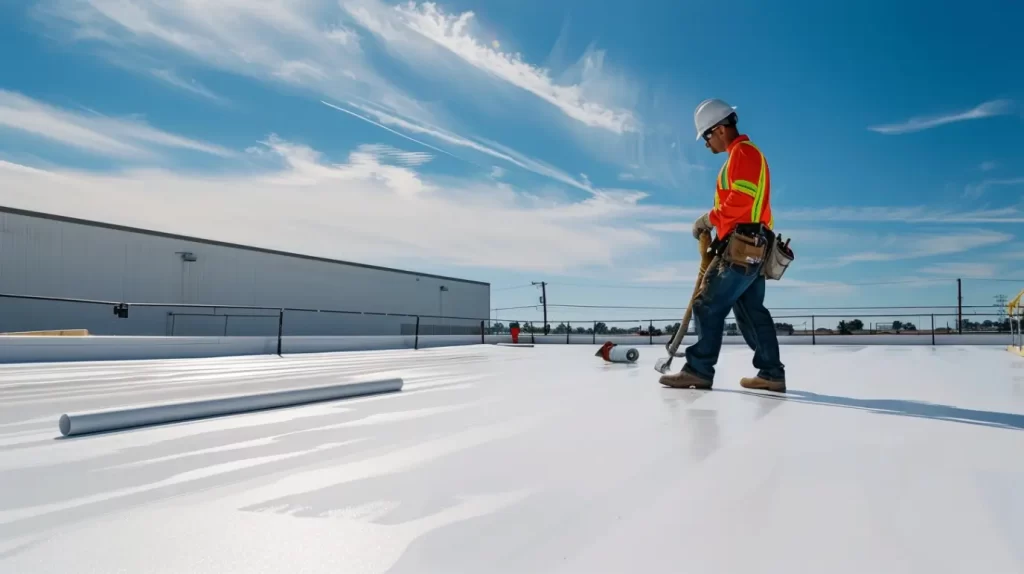
Reducing Noise and Mess During Major Roofing Projects
Noise and mess significantly impact tenant satisfaction during roofing projects. Implementing advanced noise mitigation techniques, such as acoustic blankets and sound barriers, helps minimize disturbances. Additionally, employing effective waste management strategies ensures shared spaces remain clean and accessible. By conducting regular inspections and using innovative materials, such as metal roofing, the roofing contractor can reduce debris and noise levels. This proactive approach not only enhances the tenants’ experience but also aligns with best practices within the roofing industry for successful project execution.
Advanced Noise Mitigation Techniques
Implementing advanced noise mitigation techniques is critical for commercial roofers working in occupied buildings, such as Fontaine Roofing in Orange County, CA. Utilizing specialized materials such as sound-absorbing tarps and acoustic panels can substantially reduce disruptive noise levels. Additionally, scheduling high-decibel activities during off-peak hours minimizes tenant disturbances. Combining these methods with regular communication helps property managers maintain transparency, which reinforces tenant trust. By prioritizing noise management, project teams like Fontaine Roofing can not only enhance worker efficiency but also ensure a more harmonious relationship with tenants throughout the roofing project.
Keeping Shared Spaces and Entrances Clean and Accessible
Maintaining cleanliness and accessibility in shared spaces and entrances is crucial during roofing projects. Implementing a strategic plan for debris removal and regular cleaning schedules ensures a safe environment for tenants, minimizing disruption. Property managers should collaborate with roofing contractors to designate specific areas for material storage, thereby preventing obstruction. Utilizing protective coverings for walkways enhances safety, while clear signage helps guide tenants around the work zone. These proactive measures significantly contribute to tenant satisfaction and project efficiency, reinforcing a positive relationship with the community.

Handling Tenant Concerns and Legal Obligations
Addressing tenant concerns effectively is crucial for maintaining positive relationships during roofing projects, especially in the context of roof repair. Property managers have a legal obligation to notify tenants about major roof repairs under the Consumer Protection Act, ensuring compliance with local regulations. Utilizing best practices, such as providing timely updates and maintaining open lines of communication, can alleviate tenant anxiety. Promptly addressing complaints demonstrates commitment to tenant satisfaction, reinforcing trust between management and residents. This proactive approach not only aids in compliance but also enhances the overall success of the roofing project.
Legal Requirements for Notifying Tenants About Major Repairs
Understanding legal requirements is vital for property managers handling major roofing projects like those by Fontaine Roofing in Orange County, CA. Most jurisdictions require tenants to receive notice of significant repairs 24 hours to two weeks in advance, enabling them to prepare for disruptions and comply with consumer protection laws. Non-compliance can lead to complaints or legal issues, such as cancellation fees, threatening tenant relationships and project timelines. Following these regulations fosters trust and reduces risks, a principle prioritized by Fontaine Roofing.
Best Practices for Addressing Tenant Complaints Promptly
Timely responses to tenant complaints are crucial for maintaining trust and satisfaction. Quickly acknowledge issues to make tenants feel heard, and use an effective communication platform to outline next steps. Our certifications—GAF Master Elite Contractor, CertainTeed Shingle Master, and Polyglass Preferred Contractor—demonstrate our commitment to roofing excellence. As an IB Roofing Systems Authorized Applicator and FiberTite approved applicator, we showcase expertise with premium materials. With TRI certification and memberships in CACM, CAI, and NRCA, we emphasize professionalism. A complaint tracking system ensures prompt follow-ups, while regular communication fosters a positive environment throughout the project.
Connect With Us
Successful roofing projects in occupied buildings rely on careful planning and communication. Property managers like Fontaine Roofing in Orange County, CA, should prioritize tenant needs and maintain clear feedback channels to foster collaboration. For assistance or inquiries, please contact us. By proactively notifying tenants and following best practices for scheduling and noise management, complaints can be minimized. A commitment to addressing tenant concerns enhances both project efficiency and satisfaction during construction.
Read our blog: Hidden Signs of Roof Damage That Often Go Unnoticed
Frequently Asked Questions
How is cleanup managed throughout and after the project to keep the property tidy?
Effective roofing project cleanup requires a systematic approach with regular inspections and dedicated debris removal crews to maintain an organized and safe site. Post-project, shared spaces are addressed for accessibility and tidiness, benefiting tenants and property managers alike. High cleanliness standards enhance visual appeal and create a positive experience for all. Consistent cleanup procedures are crucial for successful roofing projects that meet quality standards and exceed expectations.
Are roofing companies liable for damage?
Roofing companies can be held liable for damage caused during a project involving roof shingles, depending on factors like negligence, contract terms, and local laws. It’s crucial to have clear agreements and insurance coverage to protect both parties from potential liabilities.

